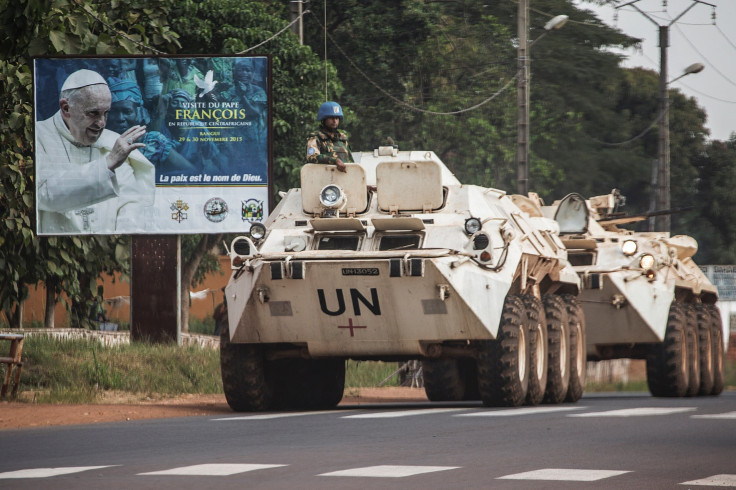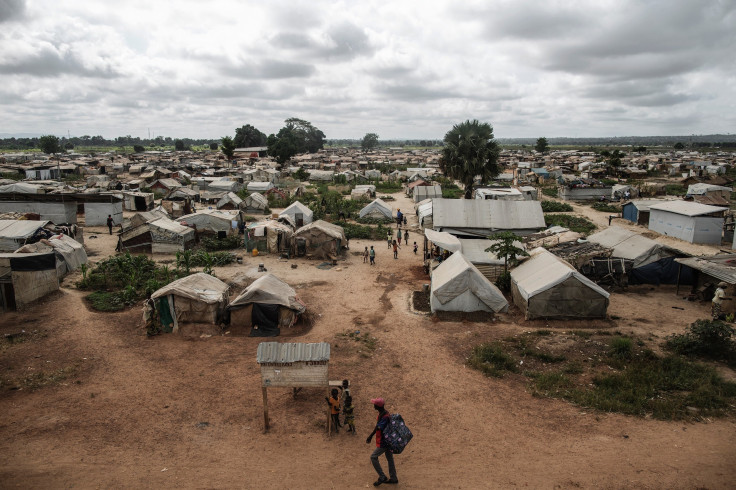Pope Francis Begins Last Leg Of Africa Tour, Heads To Strife-Torn Central African Republic

Pope Francis began the last leg of his Africa tour Sunday in the Central African Republic -- an impoverished nation deeply divided along religious lines. Of the three African countries in the pope’s itinerary, CAR -- reeling under violent sectarian strife -- perhaps has the most to gain from the papal visit.
“Many Central Africans hope that the messages he will deliver will inspire a national mobilization and realization that Central Africans learn to accept each other again, learn to live together again and learn to go toward peace and reconstruction of their country,” Catherine Samba-Panza, CAR’s interim president, reportedly said Saturday, calling the pope a “peace messenger.”
I come to the Central African Republic as a pilgrim of peace and as an apostle of hope.
— Pope Francis (@Pontifex) November 29, 2015Since he took office in 2013, the pontiff has made repeated pleas for peace in the conflict-ridden regions of the Middle East and Africa. According to Archbishop Charles Daniel Balvo, the Apostolic Nuncio in Kenya and South Sudan, Francis first expressed interest in visiting CAR during his tour of Asia last year.
“I think it was in relation to the political situation in Central African Republic, the serious unrest, the violence, that was a concern to him,” Balvo said, during an interview with Vatican Radio in August. “These kinds of things, migrants, immigrants, places where there is some social unrest, are of special concern to him.”
Since its independence from France in 1960, the CAR has been one of the least developed and most unstable nations in the world. The most recent bout of violence began in 2013, when the largely Muslim Seleka rebels forced the former president Francois Bozize -- a Christian -- to flee the country.
After the rebel leaders stepped aside in early 2014, a wave of retaliatory violence by Christian militias, known as anti-Balakas, forced most of the capital's Muslims to flee.
According to a recent report by Amnesty International, in addition to the thousands killed in over two years of violence, nearly one million people have been displaced. Over the past month, at least 75 people have been killed in the capital city of Bangui alone.

“The Pope’s visit is a rare opportunity to press for an end to the impunity that too many of those responsible for serious violations and abuses of human rights still enjoy,” Ilaria Allegrozzi, Amnesty’s Central Africa researcher, said, in a statement released Friday. “The impunity is a key driver in the conflict and all those reasonably suspected of committing crimes under international law and other serious violations and abuses of human rights must be brought to justice through fair trials.”
During his visit to CAR, the pope will also venture into Bangui’s Muslim enclave, known as PK5, to meet with community leaders and those displaced by the violence.
“It is our prayer that with the pope's visit that peace will return, we can go home and life can start anew," Sandrine Sanze, a Central African currently living in a displacement camp at Bangui's airport, told the Associated Press.
© Copyright IBTimes 2025. All rights reserved.






















